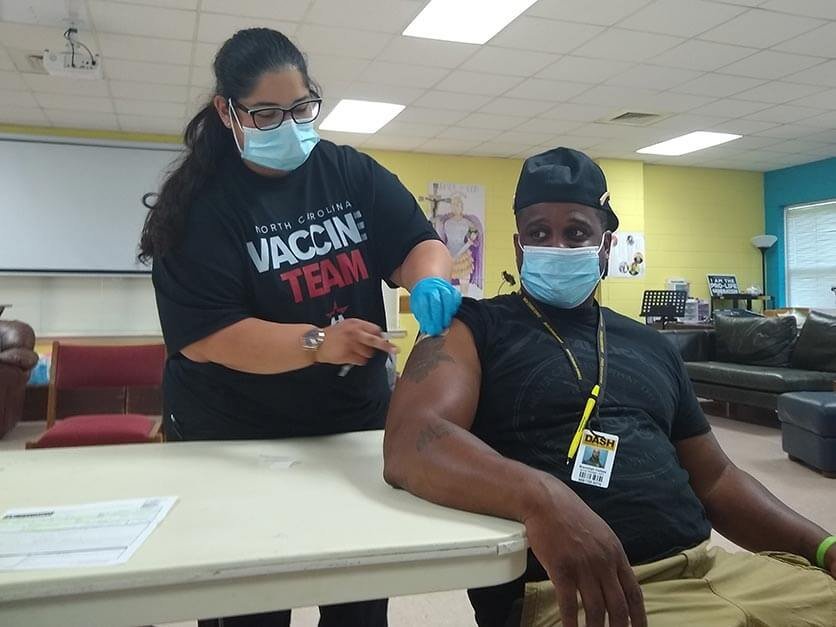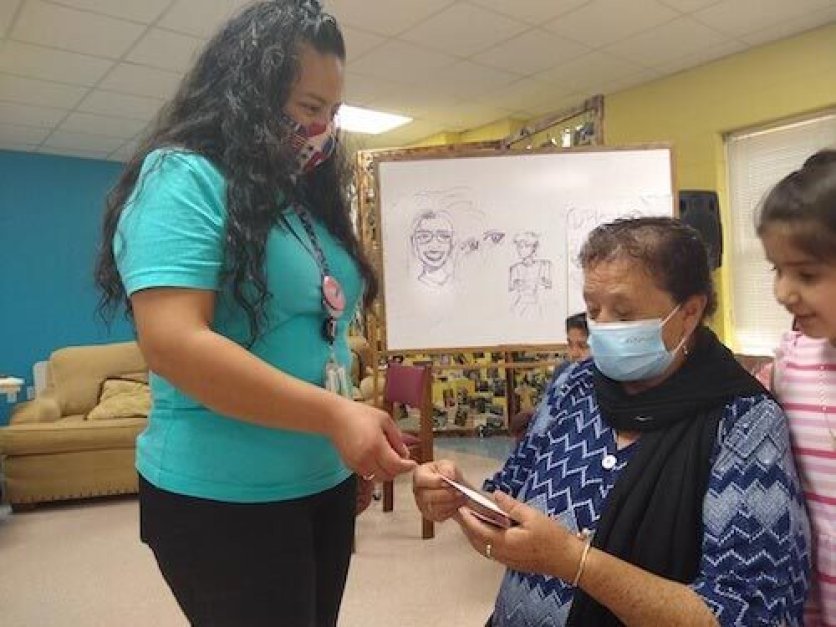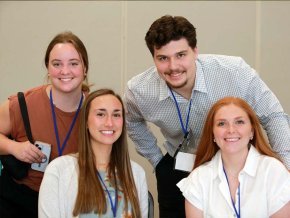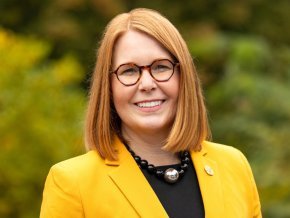LR faculty and students promote vaccination


Lenoir-Rhyne faculty and staff are participating in a program offered by the Interfaith Youth Core to serve as ambassadors to address vaccine hesitancy and improve access to vaccination in underserved communities.
Vaccine hesitation is widespread in society today.
In an effort to promote vaccinations in local communities, Lenoir-Rhyne University faculty and students are participating in a program offered by the Interfaith Youth Core to serve as ambassadors. They are working to address vaccine hesitancy and helping to improve access to vaccination by overcoming language barriers and hosting clinics in convenient locations.
"I've had conversations with people who are not getting the vaccine and have really good reasons not to get it or not get it right now," said LR graduate student Sarah Luhrs, who is serving as an ambassador. "My goal isn't to force people to get the vaccine. I have friends and family who feel differently than I do about the vaccine, and that's OK. Those relationships are too important to let this come between us. Still, I am going to encourage people to get it because science is telling us this is a way to protect ourselves and our communities."
Interim campus pastor the Rev. Christy Lohr Sapp, Ph.D., had connections with the Interfaith Youth Core. When she heard about the vaccine ambassador program, she teamed up with associate professor of psychology Taylor Newton, Ph.D., to serve as mentors guiding 15 LR students through the process.
Getting Started
As part of the Faith in the Vaccine Ambassadors project, they receive a $30,000 grant. Sapp and Newton received $7,500 that is going toward resources to support students' efforts, while the students themselves receive $1,500 for materials to plan and organize programs and events.
"As an academic social scientist, I don't often get the opportunity to put the research that I do and teach into action in such a meaningful way," Newton said. "The work that our LR students are doing this summer in our communities is literally life-saving."
Students underwent virtual training sessions with specialists out of Chicago to learn about the vaccines, including how they were developed and work in individuals, how to work with community partners and ways to improve access to the vaccine for underserved populations.
"This program aligns with my values of caring for people and trying to make health care accessible to everyone," Luhrs said. "One of the things we talk about as counseling students is how isolation has affected everyone during this pandemic. Getting the vaccine is one of the ways people can get that social piece of their life back."
Impacting our Communities
Luhrs and her fellow LR ambassadors — who reside throughout North Carolina and as far away as Virginia, Tennessee and Georgia — are charged with holding events and developing educational platforms to share information about the virus and vaccines.
Luhrs is developing an artistic competition to create fun buttons that can be given to local pediatricians as badges for children when they are eligible for and receive the vaccine. Other ambassadors are working with local health departments on door-to-door campaigns, with churches and universities hosting informational tables and discussions and with programs such as soup kitchens or youth groups such as UrbanPromise out of Charlotte.
"Students are the driving force behind this," Newton said. "They are using their particular skills to do what makes the most sense in their communities to help promote vaccination."
According to the Centers for Disease Control, the United States has recorded more than 33 million cases of the COVID-19 virus. The first vaccine was developed in the fall of 2020 and approved for emergency use by the Food and Drug Administration in December. To date, the CDC has tracked more than 171 million people who have received at least one shot.

Lenoir-Rhyne University students showcased their academic excellence and research expertise at the 2025 North Carolina Academy of Science (NCAS) annual meeting in late March.
View More
Lenoir-Rhyne University has selected Summer McGee, Ph.D, as the institution’s 13th president. Her appointment was enthusiastically approved by the Lenoir-Rhyne Board of Trustees after a national search.
View More